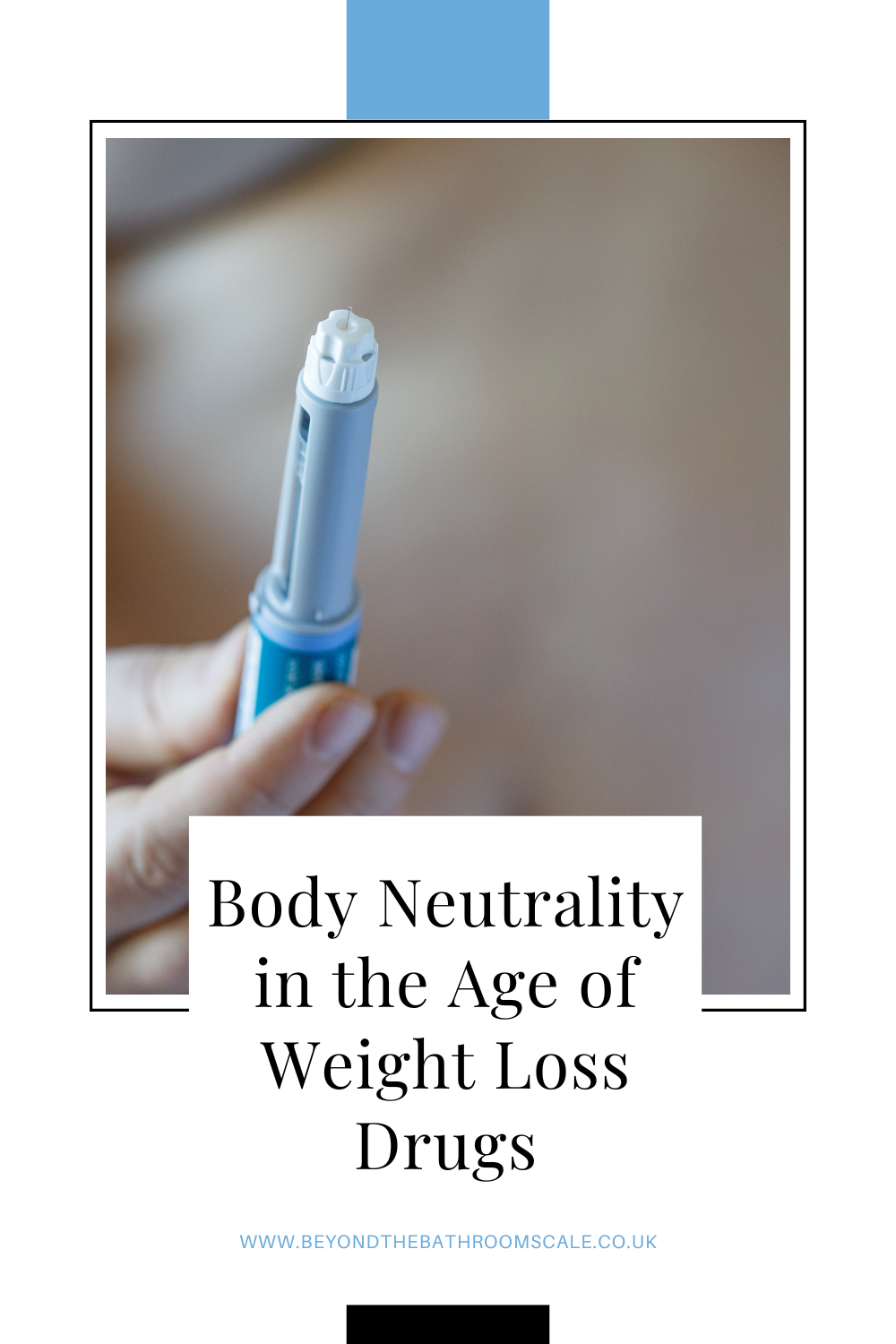Body Neutrality in the Age of Weight Loss Drugs
Body positivity encourages us to love our bodies. Diet culture tells us to fix them. Somewhere in the middle, body neutrality emerged as a quieter, more sustainable approach: you don’t have to love your body to care for it. You don’t have to feel beautiful to be worthy. You can simply be in your body without making it your life's project.
But what happens to that idea in a world where weight loss injections like Ozempic, Wegovy, and Mounjaro are gaining popularity? Can you still practise body neutrality while your body is changing, especially if those changes come with praise, fear, or discomfort?
This post explores what body neutrality looks like in the age of GLP-1s and how you can remain connected to your body with care and respect, no matter how it looks or feels.
Body Neutrality Isn’t Anti-Change. It’s Anti-Worth Tied to Appearance.
Taking a GLP-1 medication doesn’t disqualify you from practising body neutrality. Change is not the issue—it's the meaning we attach to those changes that matters. Body neutrality isn’t about ignoring appearance altogether, but about removing your value from it.
You’re allowed to let your body change. You’re also allowed to care for it, support it, and respond to its needs, without tying your self-worth to the outcome.
What If You’re Losing Weight and Not Sure How to Feel?
Many people on GLP-1s experience mixed emotions: excitement, anxiety, discomfort, even guilt. You might enjoy certain changes while also worrying about gaining weight again or feeling conflicted about why those changes matter to you.
These feelings don’t make you superficial or hypocritical. They’re a natural response to years of being told your worth depends on your size. Body neutrality doesn’t require perfection. It asks for curiosity and compassion.
Refocus on What Your Body Does
One of the most supportive practices during physical change is to shift your focus from how your body looks to what it does. Instead of focusing on aesthetics, try noticing how your body supports you in daily life.
Your body helps you move, rest, laugh, and connect. It keeps you alive, even on the hard days. Grounding yourself in function and experience, rather than form, can help reduce appearance-based pressure and deepen respect.
Body Neutrality Can Help You Prepare for What’s Next
For many people on GLP-1s, the possibility of weight regain is a source of worry. You may feel pressure to maintain your body’s current state or panic at the thought of change.
Body neutrality helps build resilience. It reminds you that your body is allowed to change again. And when it does, you can meet that change with care rather than control. Your worth remains constant—even if your weight doesn’t.
You Don’t Owe Anyone an Explanation
Rapid weight loss often draws attention. People may comment, ask questions, or assume your experience is entirely positive. You’re allowed to protect your privacy and choose how, when, and if you share your story.
You can set boundaries. You can say, “I’m focusing on my wellbeing right now,” or change the subject altogether. Body neutrality means you don’t have to turn your body into a conversation or a spectacle.
What Body Neutrality Might Sound Like
“I don’t need to feel beautiful to treat myself with kindness.”
“My body doesn’t have to look a certain way to deserve respect.”
“I can feel uncomfortable and still show up for myself.”
These are quiet truths—but powerful ones. They can anchor you in times of change and remind you that you are more than how your body looks.
Looking for Support?
If you’re navigating body changes and want a grounded, non-judgmental space to reflect, the GLP-1 Coaching Workbook is here to support you.
Inside, you’ll find:
✔️ Reflections on body image and self-worth
✔️ Journaling prompts to explore shifting identity and appearance
✔️ Exercises to build body trust and challenge unhelpful beliefs
✔️ Compassionate guidance for staying connected to yourself
TL;DR Summary:
Weight loss drugs may change your body, but they don’t have to change your worth. This post explores how to practise body neutrality while using GLP-1s like Ozempic or Wegovy, and how to meet your body with care, even when it’s in flux.

